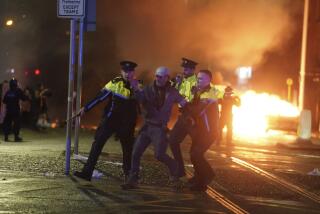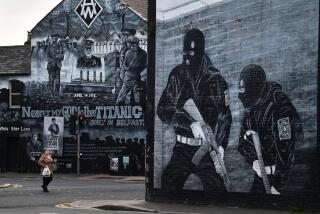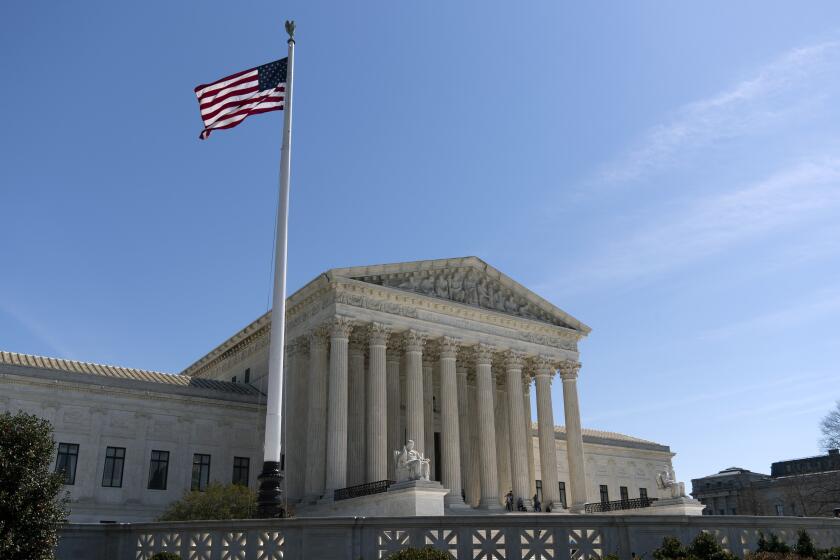Belfast Bomb Targets IRA Members; 3 Hurt
- Share via
BELFAST, Northern Ireland — A bomb exploded under a moving car Saturday, injuring two anti-British militants and a bystander in the latest attack in an upsurge of violence in the province.
The car’s two occupants, both identified as supporters of a splinter group of the outlawed Irish Republican Army, and a pedestrian were treated for cuts at a hospital and released.
There was no immediate claim of responsibility, but members of Northern Ireland’s pro-British “loyalist” paramilitary groups were believed to be behind the attack.
The blast comes amid increasing violence. On Monday, the IRA shot dead two police officers in the market town of Lurgan, about 20 miles southwest of Belfast. Three days later, a member of the IRA-allied Sinn Fein party found a small bomb attached to his car in Ballycastle, 45 miles north of Belfast.
Saturday’s bomb destroyed the car and shattered windows in houses on Claremont Street in religiously mixed south Belfast. Soldiers and police cordoned off the area as explosives and forensics experts pored over the remains.
“You just don’t expect bombs or any trouble in an area like this,” said Michael Dolan, 30, a barman standing at the entrance of Bob Cratchit’s pub just 50 yards from the still-smoking car. “It’s full of nurses and students from all over the world, not terrorists.”
The commitment of loyalists to maintain their 32-month-old cease-fire has been eroding, and some members have been using car bombs to target figures associated with the IRA--which ended its own 1994 cease-fire 17 months ago--and now apparently the splinter Irish National Liberation Army, which never formally called a truce. Both groups are fighting to end British rule of Northern Ireland and draw support from the province’s Catholic minority.
The main loyalist paramilitary groups, the Ulster Defense Assn. and Ulster Volunteer Force, have strong bases of support in working-class Protestant areas. Dissident members have been trying to match the other side’s violence an eye for an eye.
The violence overshadows efforts to formulate a way to govern Northern Ireland that is acceptable to both pro-British Protestants and Irish Catholics.
Talks chaired by former U.S. Sen. George J. Mitchell began in June 1996 among nine parties, including the mainstream Protestant parties, a moderate Catholic party and the loyalist paramilitary groups’ two political parties.
Sinn Fein, which has been barred because of the IRA’s formal resumption of hostilities in February 1996, says the continuing participation of the loyalist politicians is hypocritical.
Mitchell has recommended that the loyalists remain involved because their October 1994 cease-fire remains officially in place.
More to Read
Sign up for Essential California
The most important California stories and recommendations in your inbox every morning.
You may occasionally receive promotional content from the Los Angeles Times.













